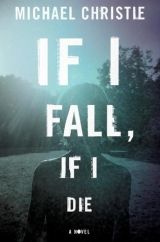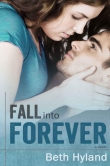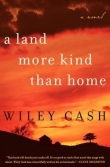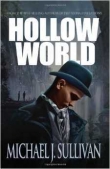
Текст книги "If I Fall, If I Die"
Автор книги: Michael Christie
сообщить о нарушении
Текущая страница: 6 (всего у книги 20 страниц)
Will observed Jonah during art class that day, which was more like cooking than making masterpieces: Mr. Miller drew the recipe on the board with a meter stick and colored chalk, and the class was expected to replicate it. Today’s recipe called for tissue paper to be wrapped over the ends of pencils, then glued in bunches to toilet paper rolls. A Christmas ornament, he said.
Now glue was mixing with the tissue paper pigment and seeping onto Will’s toilet paper roll, while Jonah’s ornament was perfect, orderly rows of spiraling color. After wringing out their magic in private, Will had finally hung Jonah’s masterpieces in New York, and his mother complimented them as “an interesting new direction in realism.” Will had practiced his own masterpieces of skateboarders and skulls, but they were warped and unconvincing. He could do color fields and free splatters, but never anything real. Lately, Will had begun to question his genius-hood, mostly because there were so many things he clearly sucked at: throwing (anything with his arms), drawing, remembering to bring both his lunch and pencil case to school, math, vaginas, spelling (his mother maintained it was what you mean that mattered), and compared with that of his classmates, his cursive looked like an earthquake readout. But if Will did have a special power, it was his ability to see the Black Lagoon everywhere. He could tell that Mr. Miller was actually afraid of his students, and they didn’t fear him nearly as much as they did failing a grade and falling behind their friends. And that Angela was afraid both of silence and of having nobody to talk to, and that someday her disease would forbid her to breathe. Will had imagined there’d be less fear Outside, but everyone was afraid all the time: of failure, humiliation, harm, though he was still working out in what order. Jonah, however, in his silence that even Mr. Miller respected, didn’t seem to fear anything.
Later that day at recess, Will and Angela were standing around as usual, drowning the interval with half-meant words. “I think he’d talk to you,” Angela said, gesturing toward Jonah, who was drawing with fingerless gloves on, his skateboard at his side, near the big rock at the fringe of the schoolyard. “You have lots in common,” Angela added.
“Like what? Being weird?”
“You’re both artistic.”
Will scoffed but accepted it greedily as the first compliment he’d garnered in probably his entire life from someone other than his mother or a deliveryman (those were more for his mother). At home his mother produced praise like water from a tap, and it was just as tasteless.
“Why don’t you talk to him?” said Will.
“All I’ve ever had him do was hiss at me. It was the sexiest.” Angela then said Jonah lived in County Park, too, though he didn’t take the bus. He skateboarded brazenly through the culvert, which was dangerous because of the hobos and vagrants often lurking there. Jonah didn’t have parents and was the youngest of five brothers, who were thieves, thugs, and bootleggers, either in prison, going to prison, or recently released. Angela said a hockey player from the other side of town once whipped Jonah’s face with a birch switch. The next morning the eldest Turtle Brother showed up at the kid’s house and asked the boy’s father to have his son write a letter of apology. When the man refused, Jonah’s brother broke the man’s cheekbones, as well as those of two neighbors who came to help, then sat on the curb and waited for the police. On the schoolyard Jonah was untouchable, like a hockey referee who never blew his whistle.
“But why would he talk to me?” said Will.
“Maybe he’ll recognize a fellow artist,” she said.
“Okay,” said Will, already walking.
“Really?” she called after him. “Don’t say anything about me!” she crowed, wringing her hands.
“Thanks for telling me to walk away that day by the creek,” Will said when he reached him. “You saved my life.”
Jonah’s leg stopped bouncing, and his large liquid eyes rose from his sketchbook and fastened calmly on Will’s. He had an angular face, as though his features were constructed entirely of wedges.
Waiting for some reaction, Will began to feel even more lost and unprepared for conversation than usual. He already preferred kids like Angela, who commandeered airtime like a seasoned radio host. Jonah blinked slowly, then returned to sketching.
“So why don’t you talk?” Will said.
Jonah pumped his shoulders once, leaning into his masterpiece.
“You talk at home?”
Jonah nodded, pencil wiggling.
“You just don’t talk at school?”
He shook his head and brought the pencil parallel to the page and began shading. The Indian kids at Will’s school all rarely spoke, and when they did it was in voices barely audible and with downcast, skeptical eyes, as though the Outside was one big courtroom in which they were on trial. Will stood marveling at the evenness of Jonah’s shadows, their texture, how he knew exactly where light wasn’t.
“I like your masterpieces,” Will said.
Jonah looked up again. His face crinkled. He took a breath, then held it and squinted harder. “My what?” he said. His voice was soft and fast, built entirely of smooth tones like the high notes on a bass.
“Your masterpieces,” said Will. “I saw some when I was sitting in your desk. They’re amazing.”
“Leave me alone, kid,” Jonah said dispassionately, shaking his head as though they’d been conversing for hours, trying to untangle some tricky problem, and Jonah had finally reached his limit. He retreated again to his sketchbook.
Will watched him for a defeated moment before making his way back to Angela.
That night at home, Will let his slow-cooked butternut squash enchiladas cool untouched before him. He saw his mother quake at the sight of his uneaten food, almost savoring this new power of refusal he wielded over her.
“Why did you tell me that pictures are called ‘masterpieces’?” he said.
“Oh,” she said, setting her fork down. “That.” She snapped her elastic, and he resisted the urge to ask why the hell was that question scary. “Well, because that’s what they really are.”
“No, they’re not,” he said sharply. Since he’d been going to school, there arrived inexplicable moments when just the timbre of her voice was enough to irrigate him with rage, moments that passed as quickly as they came.
“To me they are.”
“Well, to other people they aren’t, like people who are actually good artists,” he said, throwing his napkin at his plate. “And there’s more of them than us, Mom.”
8
Snow fell every day after Halloween, as though the lake had picked itself up and thrown itself inland, snuffing instantly the vivid bonfire of fall. Inside, Will had only felt the cold of the freezer in Toronto, but now immersed in it, he adored the completeness winter brought. Snow made the Outside more like the Inside, a white sheet put over the world, one enormous blanket fort.
Will whiled away hours in his yard, investigating snowbanks, testing their crusts and consistencies, reconnoitering their cliffs and drifts. He discovered snow wasn’t tasteless—it tasted like club soda, but not as gross. And slush was so named because of the sound it made. And the sand that plows threw on the road yielded a substance that was half earth, half ice and the deceptively inviting consistency of brown sugar.
His mother had forbidden tunnel forts, so he left his open to the sky. While she peered out from the window in Paris, Will would recline in his burrow, watching frizzy clouds saunter past, wondering if his friend Marcus lay somewhere Outside exactly like this, turning his face to the same endless sky, untroubled that no one was there to protect him. Over the years, Will’s mother had read him a thousand stories about orphans torn from their parents and abandoned to the wilds of the Outside. Will had never had that problem. His had been the opposite: too much protection. But like the twelve and the one on a clock’s face, he and Marcus were closer to each other than you’d think—“Other Will,” he’d called him at first. Will had since heard Angela use Marcus’s word, whatever, to express a complete indifference, but Will could still hear the true tenderness with which Marcus had offered it. Nothing can really hurt you, Will, Marcus had said, and Will knew his friend was alive somewhere, Outside, thriving.
Weeks passed. Winter strayed into a truer, purer cold. Will’s morning walks were so frigid the ice chirped underfoot like plastic. The air shocked his chest, and a satanic wind bellowed through the elevators up from the lake, now frozen out to the breakwater.
One day before school, his mother began stuffing some packets into his jacket and snow pants. “What’s this?” he said.
“I ordered a box. Hand warmers. Neat, huh?” she said, bending one until it snapped before shoving it into his armpit as though he were a shoplifting accomplice.
His mother knew nothing of winter. To her, the season rendered the world even more predatory. She’d told him about a book she’d read in film school that claimed that because nature was always trying to kill Canadians it made them different from other people. “In Thunder Bay, you doze off in a snowbank”—she’d say before making a sharp teeth-whistle—“that’s it.” But he’d napped in his snow fort several times and woken unscathed, which meant both she and whoever wrote that book didn’t know what the hell they were talking about. His mother had already exaggerated so many dangers that Will was finding it increasingly difficult to heed her warnings.
On his way to school a hand warmer slipped down into his crotch, yielding the sudden sensation he’d wet himself. Soon he was flushed, dripping with sweat that froze in his bangs like the mousse that had recently materialized in the hair of his classmates. He dumped the warmers along with his gloves, knit cap, and snow pants in the trees before making his way up the path.
At school there was an unspoken contest among boys to see who could brave the frost with the least protective clothing. Their ears went red as stove elements while their cheeks cramped a bloodless white. Jonah—who wouldn’t even look at Will after the masterpiece incident—wore just a hooded sweatshirt and old-man shoes, maybe because he was stylish or maybe because his winter clothing had burned in the house fire. Either way, in the school-wide tournament to be the least appropriately dressed yet still alive, Jonah won.
That afternoon, Mr. Miller asked Will to stay after class. He’d seemed a little ragged all day and was sipping from a mug that wasn’t steaming and smelled vaguely of the fluid Will’s mother used to clean her silver jewelry. “Will, I wanted to say you’re settling in just fine here,” he began. “Your work is improving. I can even read your printing now, which is a minor miracle.”
Will said thanks and turned to go. Time spent in the direct spotlight of any adult always sent him cowering for the anonymity of a herd of children.
“Another thing, Will. I thought I recognized your last name—who wouldn’t in Thunder Bay. But I wanted to say I’m happy your mother decided to move back home from—where was it? San Francisco? I heard she’d done well for herself. ’Course the only way to accomplish that nowadays is to leave,” Mr. Miller said, letting out the fumes of a great sigh that waggled the pink stalactite between his front teeth as he looked out the window to the lake. “I worked under her father and remember her and her brother from the harbor and, well, it was a shame. What happened. I think all of Thunder Bay … Well, we felt for those two.” Then his voice went gravelly. “Coming back took guts.”
Will did the chuckling thing he’d picked up from Angela. “Sorry, but you’ve got the wrong Cardiels, sir,” he said. “It’s just me and my mom. Always has been. And she grew up in Toronto.” To this Mr. Miller apologized, and Will made his escape.
When the biggest snow came, a billion flakes corkscrewed slow to the ground. Cars disappeared. Will watched his neighbors dent their truck with shovels trying to locate it. Out back, Will found the mud on the creek bank flash-frozen and iron-hard like the gravied entrée of a TV dinner. He watched ice creep out from its banks, first like awnings, then with icy fingers across the narrows.
It was thanks to these winter investigations that Will discovered the boot tracks in his backyard. They were too big to be Marcus’s, nearly double the length of his own, and fresh. They came up from the creek through a gap in the hedge, then stopped about ten feet from the window beneath San Francisco, right near where he’d found Marcus. The closest footprints were packed tighter than the others, toes aimed houseward. The person had stood in that spot for some time, observing, and at the midpoint of the tread, a distinct hexagonal shape was sculpted deep and clean in the snow.
Will followed the tracks westward along the creek, down toward the lake, wondering if it could’ve been a yeti—who weren’t real, but still—or a deliveryman, or the ferrety gas meter reader, or perhaps one of the gruff, unemployed men who rang their bell with pitifully affordable offers to plow their driveway, men his mother always hired and tipped extravagantly. But what would any of them be doing approaching their house from the creek?
Emerging from the woods near the hockey arena, Will lost the trail in the tire print nebulas of its parking lot.
Relaxation Time
Today she ended her Session early when an image of her twin brother’s wrecked body lifting from the black lake cut into her thoughts and left her nauseous. While cleaning up at the sink, she recalled her very first glimpse of Will’s blood, in the hospital mere minutes after his birth. A test for blood sugar, the nurse said, roughly squeezing a lustrous ladybug from his pricked heel. Arthur, already depleted by the ordeal and itching to return to his drafting table, went ghostly when he saw it, but Diane’s only thought was: A more precious substance I cannot imagine. The blood was so recently hers—she wondered if she could still rightly call it her own—and had only become more valuable now that it had left her.
Initially at least, she was happy having a boy. Boys seemed more durable, less finicky. Will’s birth somehow eclipsed the tragedies of her past—her chief responsibility now being to ensure he didn’t taste abandonment as she had. He fascinated her like no book or film or idea had before. She spent hours watching him in his crib, parsing his overwhelming actuality. Each night she read to him, his eyes waltzing in wonder, until her throat was hoarse, until his book’s covers detached, until she’d memorized every word, then until he’d memorized them himself. “That?” was his first word, said pointing at a page. They spent hours speculating what would happen after the story ended. She ceased reading adult books entirely, her most private thoughts taking the shape of children’s stories. Gone were ideas for films, the cinematic visions once gifted to her upon waking or during long walks in the city, but she offered her mind gladly to the chaos a child brought, to the endless tidying and banter, to the horrors these perform on creative inspiration.
Then came learning to walk, all that totter and tumble. Will’s first unmoored voyage from coffee table to couch—relentless was a word whose true meaning he’d taught her. The cracked heads, bashed elbows, and rug burns; the way Will rose, bloody dirt in his teeth, that little lung-sucking storm before the big show. Motherhood acutely sensitized her to the menaces of the world: the murderous table corners, the seduction of electrical outlets, the friendly dogs that snap gladly at tiny fingers.
How precariously blood moves through us, she thought now soaping her shaking hands in the bathroom. We spring a small leak and lose ourselves to the ground. And how dearly we depend on the lone muscle convulsing in our chests. On the two flimsy balloons that so narrowly rescue us from suffocation. On the wobbly pâté in our heads that preserves our very selves. All of it so ad hoc, so absurd, so temporary.
In the hallway she heard a curious scratching emanating from Will’s studio—New York, he called it. A welcome sound. With Will away at school during the day now, like a planet unhitched from orbit, the house had fallen into gloom and silence, even though she’d begun leaving the kitchen radio on and often consulted Will aloud while vacuuming or staking her window-box tomatoes as though he’d never left. Still, the days felt doubly long. She missed his industry and his mind-bending questions (“Is it murder if your friend agrees to let you cut off his hand and then you strangle someone with it?”) and had to settle for burying her face in the plush, boyish scent of his bedding several times per day.
She opened the door to New York and found him rubbing 40-grit sandpaper over the grips of the new snow boots she’d ordered, a prisoner’s file beside him, blue rubber bits splayed on his easel and already ground into the carpet at his feet.
“What’s going on, Will?”
“Oh, hey,” he said, startled for a second. Then it passed. “Grips are actually really hard to get off,” he continued, returning to the task.
“But Will,” she said, pulling a troubled breath, “you’re destroying your boots. We just had those delivered, and now you’re—”
“—Making them better,” he interjected.
“Grips are supposed to … what? Any idea?” she said with an ineffectual elastic snap. And in an instant she saw Charlie hurtling down a still-icy Machar Avenue in early spring, pedaling for broke on a bicycle he’d only just learned how to ride, his coarse hair a wildfire in the wind, with Theodore jogging behind bellowing complex instructions and warnings, mere seconds before Charlie would crash into a yellow hydrant, folding his nose flat to his cheek and forcing their family’s painful return to the hospital, where their mother had taken her last breath not three weeks previous.
“I’m making them more exciting,” Will said.
“Grip, Will. That’s what they do,” she said.
“Not always,” he said.
“And why may I ask are you ruining your boots?” she said, putting her hands to her hips more to steady them than to appear commanding.
“For nothing.”
“So why, then?”
His eyes fastened on hers. “Because they’re mine to ruin.”
“You remember who buys those boots,” she said, guiltily reminding herself of Theodore.
“So send them back,” Will retorted. He held the boots up, one on each hand. “I’ll go barefoot, then.”
“You are going to snap your neck is what’s going to happen. You’re going to slide your way all the way down to the harbor and”—she felt her voice go shrill and her blood surge as she watched Charlie descending into a grain bin with only his grin and his daring to save him, then stepping out the door the night that he—
“Stop yelling, Mom,” Will said.
Had she been yelling? She apologized, drawing her hands to her face, fighting anew to keep the images from overthrowing her mind.
“Mom,” he said in a voice so wounded and adult that it shocked her, “it’s like you’re not actually worried about me. It’s more like you’re scared of me.”
With that all her panic and anger dissolved. She closed her eyes, preparing a rational, level-headed exhibit of the ways in which her son was sorely mistaken, a response that would assure her dear boy of this notion’s utter preposterousness—afraid of her son? She was afraid of about everything else!—until a vapor of images swooped again in her, stories from another life, grain pouring from a hopper, a train, a cable, a subway platform, a staccato dream she’d had so many times it had become her: a son torn wordlessly from her breast, dragged back from their house into the woods by phantom figures to be devoured while no one made so much as a sound—neither she from the window, nor he from the dark. “I’m not afraid of you, honey,” she managed to get out, black spots speckling her vision as she backpedaled from the room.
How could she tell him that to have lost a twin was to be half-erased? To be dead by proxy. That when another version of your very self had failed, had been evicted from the world and pushed back into the dark, what less bitter end could be hoped for, for those you love? How could you ever expect a child to comprehend how easily, how unnecessarily, a loved one can be torn from your arms and how it can leave you ruined forever.
So whether she was scared for him, or of him, it mattered little. Her job was still the same: To build them a world that death could never touch.








